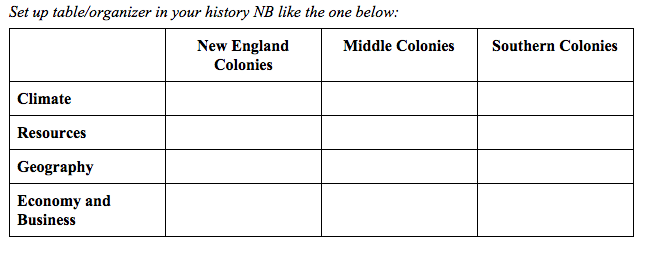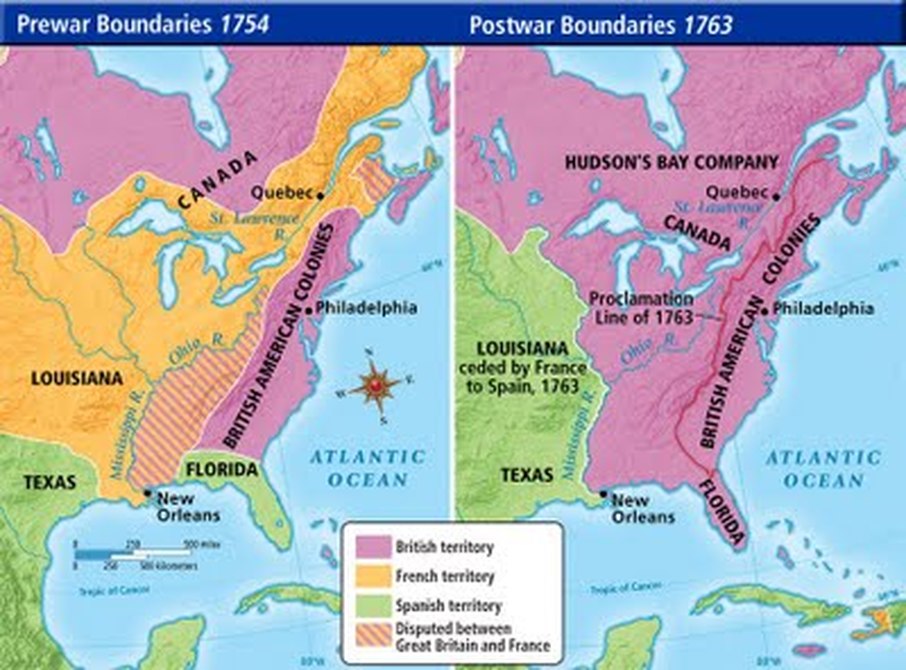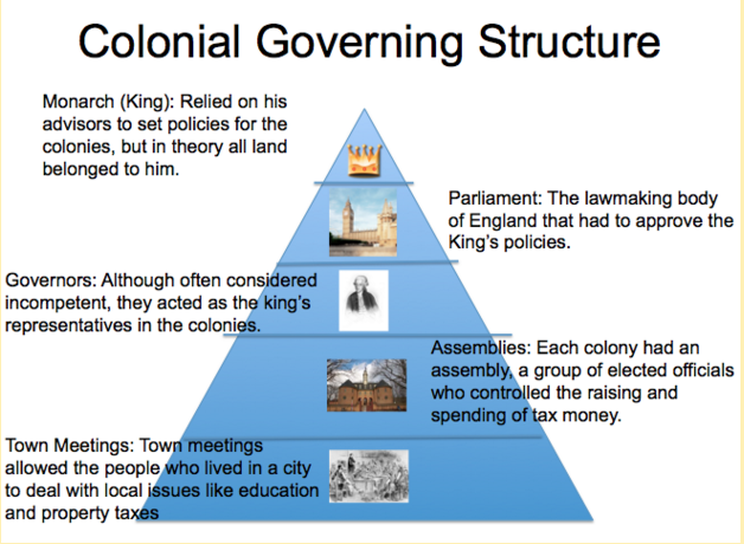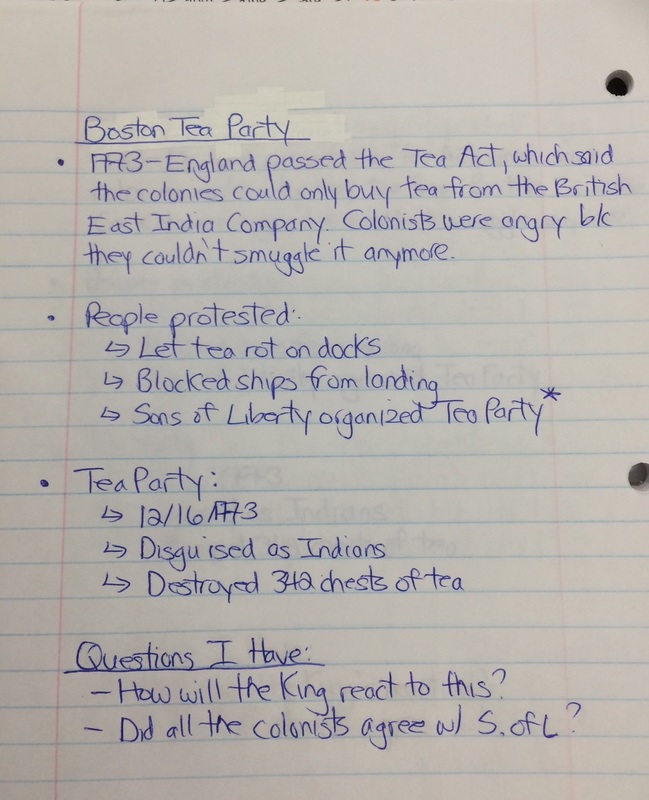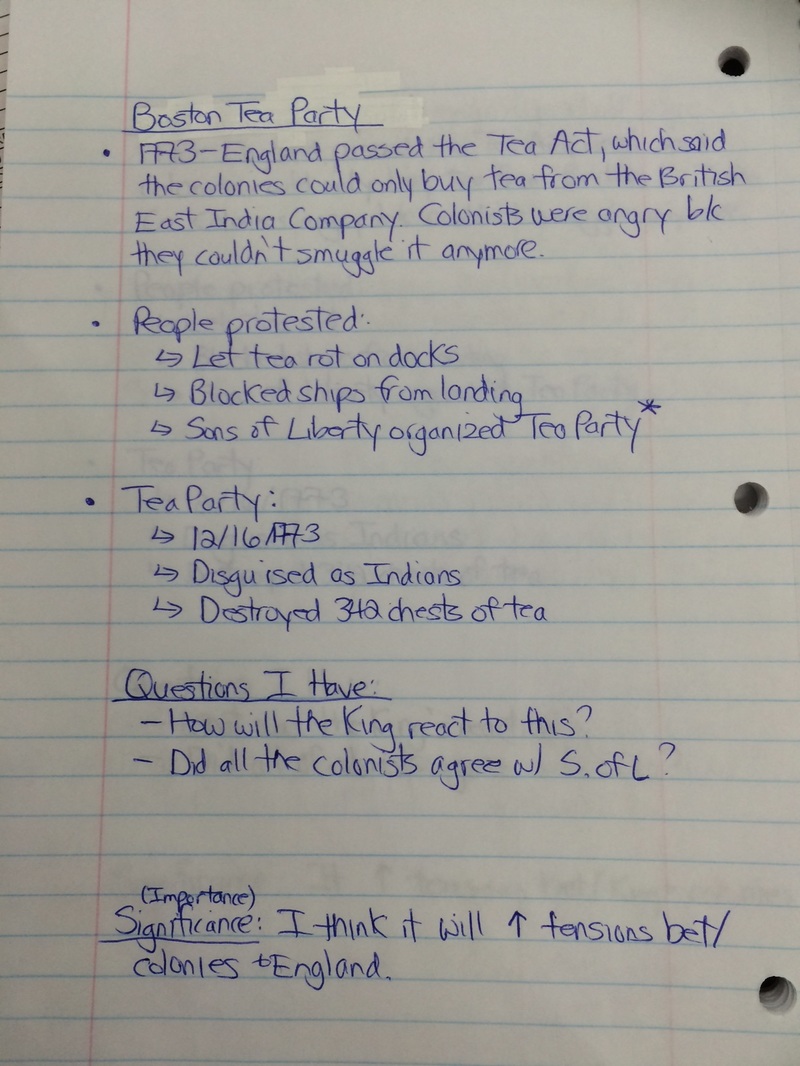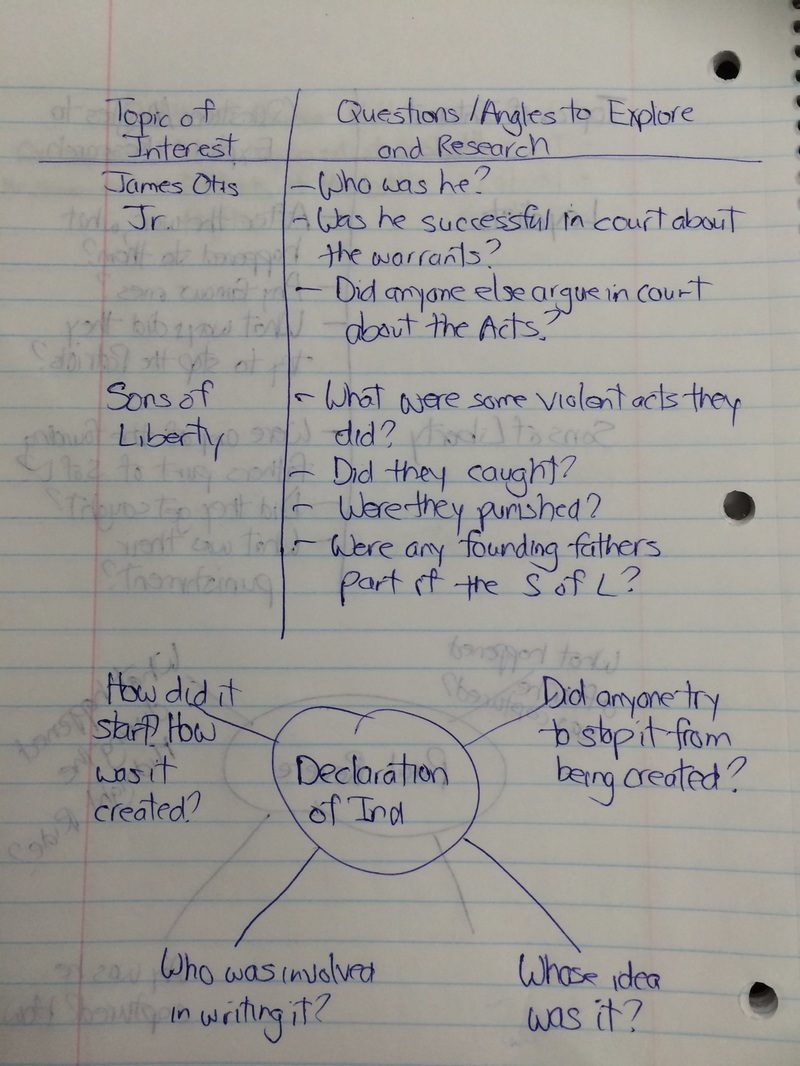checklist/grading criteria
The culminating project for this unit will be documentary film. This consists of three components:
The 3 products will be assessed on the criteria described below:
- Script
- Director's Notebook
- Film (created on iMovie)
The 3 products will be assessed on the criteria described below:
|
Checklists for Scripts, Director's Notebooks, and Documentary
Your browser does not support viewing this document. Click here to download the document.
|
Rubric for Scripts, Director's Notebooks, and Documentary
Your browser does not support viewing this document. Click here to download the document.
| ||||||||||||
lessons:
Historians analyze the formation of new societies by examining push/pull factors that motivate people to take dramatic action.
Historians analyze the development of society by examining the relationship between geography, climate, resources, and economy.
Focus Question:
How did the geography, climate and resources in each colonial region cause the economies to develop differently?
How did the geography, climate and resources in each colonial region cause the economies to develop differently?
Using the textbooks and the other resources given to you in class, fill out the table/organizer with the appropriate information, then answer the focus question.
Historians develop a deeper understanding of a conflict by examining what led up to the conflict and what resulted from it.
Last week, we learned that there were many different European countries, like England, France, and Spain, claiming land in North America. All of the European powers wanted more land and they began fighting each other for it. In the 1700s, the English and the French in particular were fierce rivals. In North America, the countries fought in what became known as the French and Indian War. Eventually, the English won and came to dominate the land.
But, this came at a great price. It was the French and Indian War that actually created the seeds of tension between the colonies and England, which eventually led to the American Revolution.
Important Facts about the French and Indian War
Important Facts about the French and Indian War
- Dates: 1754-1763
- Different sides: French vs. Britain (Indians/Native Americans were on both sides)
- Causes: British began to trade with the Native Americans and the French didn’t like that. Britain and France were also arguing over the land boundaries.
- Winner: Britain
- Effects: Britain gained more land, but was also in debt so they decided to tax the colonies.
Historians analyze events by considering different perspectives.
problems facing britain after french and indian war
|
Problem 1: Western Lands
After the French and Indian War, Britain a lot of new territory in North America and Canada. When Britain began to plan for what to do with this new land, they were faced with several problems. This is because there were many competing people who wanted to use it. Below are some examples: 1. Britain had to decide whether and what lands had to set aside for sale, for farming, and for hunting. 2. Pennsylvania and Virginia were arguing over the newly acquired land. 3. British land companies and colonial companies were competing with each other over the land. 4. American Indians had some claims to the land because of treaties they had signed with England during the French and Indian War. Possible Solutions 1. Put several regiments (a permanent army) of British troops in the colonies to defend them against the French and the American Indians. 2. Temporarily close Western lands until more solid plans were decided. 3. Allow settlers to move west at their own risk without defending them against the American Indians. |
Problem 2: Finances
Britain in London estimated that 10,000 British soldiers would be needed to defend the colonists from American Indians and a possible French attack. The cost of maintaining such a large army would be £300,000 per year. The British thought the colonists should help pay for the cost of their own protection. Furthermore, the French and Indian War had cost Britain £70,000,000 and doubled their national debt to £140,000,000. Compared to this, the colonists’ debt was extremely light, as was their taxes. The colonists paid only about 1/20th of the taxes that were paid by the British living in England. Attempts to raise taxes in Britain had resulted in riots. Taxpayers in England thought it was about time that the colonists pay their fair share. The colonists saw no reason for paying England to fight a war to keep them in the British Empire. They had never paid direct taxes to England, and had no intention of paying for a war they claimed they hadn’t started and didn’t need, especially since they had no say in the government. Possible Solutions 1. Increase taxes on people living in England. 2. Put taxes on articles of everyday use on people living in the colonies. 3. Have colonists pay the same taxes as people living in England. |
Problem 3: Trade Regulations
Even though the colonists were expected to obey the mercantile (trade) laws that regulated (controlled) their trade with England, they frequently avoided the laws and the tariffs (taxes) required at the ports. In fact, many colonists smuggled (move products illegally) goods into the colonies so often that it became a way of life for many American merchants. Britain lost a lot of money because of this smuggling. In American, Britain collected less than £2,000 per year although it cost FOUR TIMES more that amount to serve them. The British estimated that goods totaling around £700,000 each year were imported illegally by colonists. The reason why there was so much smuggling was because the British officials at customs were usually inefficient or corrupt. They accepted bribes rather than collect the money due to the King. Those who were caught smuggling were put on trial, but they would be judged by a jury of their peers, who did not believe that smuggling was a crime. Possible Solutions: 1. Pass strong laws to enforce existing trade regulations (for example, eliminate jury trial for people accused of smuggling and eliminate the need for search warrants) 2. Repeal (take away) all trade regulations. 3. Allow smuggling to continue |
The King's Actual Decisions
In order to solve his problems, the King decided to do the following:
In order to solve his problems, the King decided to do the following:
- Passed the Proclamation of 1763, which prohibited colonists from settling west of the Appalachian Mountains or from purchasing lands in that area. All who were settled there were ordered to return it. Land would be reserved for Indians until the British decided on a more permanent solution.
- Britain decided to station 10,000 solders in North America to protect the colonists. The Quartering Act provided that colonists help support troops by supplying living quarters, candles, and rum.
- Passed the Sugar Act, which lowered the tax on molasses (in the hopes of reducing smuggling) and they passed the Stamp Act, which taxes paper goods.
- Writs of Assistance gave customs agents the right to search for smuggled goods without a search warrant
- Colonists accused of smuggling could be tried before a judge rather than a jury.
Reflection:
- Do you think what the King decided to do was fair? Why?
- How do you think the colonists reacted to this?
Historians record their learning by reading in chunks and paraphrasing the most important information.
Notes aren’t just re-copied texts. The purpose of notes is to record your learning. The best way to record your learning is to read in chunks, to pause and reflect on the central ideas you learned, and then to paraphrase the most important information in your own words.
Nonfiction Reading Protocol
Nonfiction Reading Protocol
- Read chunk of text
- Ask myself: What is this mostly about (summarize in a sentence or two)
- Reread (skim) chunk again
- Cover up the original text
- Paraphrase most important takaways
Historians understand a conflict by analyzing events from different perspectives.
Click on the icon below to download the packet given out in class.
| Boston Massacre Perspectives Packet | |
| File Size: | 24 kb |
| File Type: | doc |
Strong readers form their own opinions by examining both sides of an argument.
Read both viewpoints below. Can you tell which one is a Patriot and which one is a Loyalist?
What are each of their reasons for either wanting or not wanting independence from Britain?
Patriots - colonists who wanted independence from England
Loyalists- Colonists who remained loyal to England and King George
What are each of their reasons for either wanting or not wanting independence from Britain?
Patriots - colonists who wanted independence from England
Loyalists- Colonists who remained loyal to England and King George
|
Viewpoint 1
British abuses and oppression[1] of the American colonies have escalated to the point of no return. For reasons of both honor and practicality, the colonies should abandon efforts toward reconciliation[2] and immediately declare their independence from the mother country. Since the early 1760s, [England] has initiated one crisis after another, each seemingly more insulting and destructive of colonial interests than the last. The Stamp Act of 1765, which dared to tax us without our consent[3], was the first serious breach[4] of trust between the two peoples. Parliament wisely repealed[5] it in the following year…but there then followed the Townshend duties, the Boston Massacre, the Tea Act, [and] the Coercive [Intolerable] Acts designed to cripple Boston…. Insults, abuses, betrayal, aggression, and bloodshed, then, … justify the growing American desire to separate from Britain. [….] We cannot help but recognize that we will be better off for doing it; for independence will bring us certain benefits, both immediate and long-term. Regarding the long-term benefits of independence, there is first the fact that Americans will be able to decide their own fate. No longer will American merchants and landowners wriggle helplessly under the thumbs of Parliament and the King. [….] We say that the only power we should feel obliged to recognize above ourselves is God Almighty! American independence will also forever put an end to the threat and reality of taxation without representation. […] America will no longer be bound to support British wars and alliances, but instead will have the right to pick and choose the nations with whom it wishes to be friends. Finally, it is essential that we Americans declare our independence now, rather than delay and end up saddling our children or grandchildren with the task. For make no mistake about it: An independent America is inevitable! [Loyalists] fail to see the plain truth that Britain is too far away and too detached from our interests to rule us effectively any longer. This is simple matter of common sense. For these reasons, America must be free and independent, a noble goal [that many Americans] have pledged to seek, support, and defend “to the last drop of their blood, and the last farthing of their treasure.” [1] oppression: cruel or unjust treatment [2] reconciliation: the restoration of friendly relations; to make peace [3] consent: permission [4] breach: break; betrayal [5] repealed: to get rid of; to take back |
Viewpoint 2
Under no circumstances should the American colonies declare independence from the mother country. Instead, we should reconcile our differences with and remain loyal to the land that brought us into existence, nurtured us, and continues to protect us from hostile forces … in the world. The proper course of action is twofold: first, to remain steadfastly loyal to our land of origin and offer no support whatever to the lawless agitators [Patriots & Sons of Liberty] among us; and second, to seek reconciliation[1] with the mother country…. Loyalty to the mother country, though first in importance, is not the only reason for refraining[2] from a split with Britain, there being practical reasons as well. The British have, it is true, made their own share of mistakes and causes a certain amount of ill will and havoc in the colonies in recent years. But these mistakes and the relatively small harm done … does not warrant[3] a split between parent and child, and our differences can easily be reconciled by calm discussion and negotiation. The advantages of such reconciliation are obvious and many. First, no more lives would be lost needlessly in altercations[4]…. Second, “By a connection with Great Britain, our trade would still have the protection of the greatest naval[5] power in the world…. The protection of our trade, while connected with Britain, will not cost us a fiftieth part of what it must cost were we ourselves to raise a naval force sufficient for the purpose.” Moreover…once we have reconciled with the mother country, within a few years…immigrants will again begin to arrive from different parts of Europe, swelling our local populations, raising the values of our lands, and increasing prosperity[6] overall. Another reason for maintaining our ties with Britain…is that the American colonists are Englishmen by temperament[7] and tradition, and therefore are not suited to assuming a new identity and rules themselves …. Moreover, they lack the money and resources to do so. There is a huge risk for our future and well-being if we try to start a war with Britain for independence, and we might not be able to survive on our own. We have never tried to run our own government, and we may not even know how to design one. Independence could be a very, very bad idea for us. [1] reconciliation: the restoration of friendly relations; to make peace [2] refraining: stopping oneself [3] warrant: justify [4] altercations: arguments or disagreements [5] naval: relating to a navy, which is an army that fights on the sea [6] prosperity: happiness [7] temperament: personality |
Historians research effectively by learning their way around informational texts.
Possible Topics to Research:
- Battles at Lexington & Concord
- Paul Revere and the Midnight Ride
- Thomas Paine
- Common Sense
- Declaration of Independence
- George Washington
- Battle of Saratoga
- Benedict Arnold
- Benjamin Franklin
- Thomas Jefferson
- Valley Forge
- John Paul Jones
- “guerrilla warfare”
- Battle of Yorktown
- Lord Cornwallis
- Continental Congress
- Continental Army
- Alexander Hamilton
- Battle of Bunker Hill
- Marquis de Lafayette
- Treaty of Paris
Historians analyze topics that come up in their research by rereading and asking themselves questions
Historians research a topic by reading in small chunks, paraphrasing what they read, and considering its significance.
Historians examine how the needs and interests of different groups lead them to play different roles in a conflict.
Read and take notes here about how other groups (Europeans, African Americans, women, American Indians) participated in the war.
Filmmakers become familiar with a genre by exploring how and why others have used it to present information about a topic.
Documentary film - A nonfiction film intended to capture some aspect of reality for the purpose of maintaining a historical record or for general instruction.
Watch Ken Burns Documentary: http://video.pbs.org/video/1832458783/
Determine what is the main idea and the emotions felt for each chapter.
Documentary film - A nonfiction film intended to capture some aspect of reality for the purpose of maintaining a historical record or for general instruction.
Watch Ken Burns Documentary: http://video.pbs.org/video/1832458783/
Determine what is the main idea and the emotions felt for each chapter.
Historians prepare for a research project by identifying possible areas of interest and questions they have.
Historians research effectively by identifying and using reputable sources
What is a reputable source?
- Established organization (e.g. college, historical society, museum, government site - usually indicated by domain name: .edu, .org, .gov)
- Wikipedia SOURCES (at bottom of page)
- PBS, The History Channel
- “for kids” (after search term)
Historians organize their research by dividing it into subtopics within the larger topic.
After reading through your research notes, find patterns and create categories/subtopics. For example:
Topic: Battle of Bunker Hill
Subtopics:
Topic: Battle of Bunker Hill
Subtopics:
- Battle itself
- Myths
- Effects
Documentarians make meaning of their research by coming up with a claim about their topic and organizing their research to support it.
Claim: The Battle of Bunker Hill was an extremely significant battle in the American Revolution, not only because it was one of the bloodiest in the war, but because it changed people’s perspectives about the Americans’ chance of winning.
Outline:
**Note that I changed/revised my outline a little bit from yesterday to better match and support my claim. When you make your claim, you also want to make sure that all of your subtopics have a purpose and is supporting your claim/main idea.**
Outline:
- Description of the battle itself
- Direct effects of battle (number of deaths & casualties)
- Impact on Americans
- Impact on British
- Legacy of the Battle
**Note that I changed/revised my outline a little bit from yesterday to better match and support my claim. When you make your claim, you also want to make sure that all of your subtopics have a purpose and is supporting your claim/main idea.**
